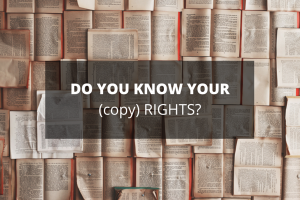
Can My Negative Result be “Removed” from the Internet?
When it comes to personal branding online, nothing can be more frustrating than dealing with a negative search result. Whether it’s a disgruntled client, a bitter ex or a bad decision that won’t fade into the past, an unflattering search result can take a serious toll on both your professional and personal lives.
One of the most common questions that our clients ask us is, “Why can’t you just get Google to remove the negative result?”. Unfortunately, it’s not that simple. There are a lot of rules and regulations that govern whether or not a search engine has to de-index a site, or if a user has the legal right to demand removal of certain content.
As a result, there are only a small handful of scenarios where you will likely be able to get the content de-indexed or removed:
-
An incident of revenge porn
-
Copyright infringement
-
A violation of “The Right to Be Forgotten” (if you live in an area governed by the EU or in Argentina)
-
Sensitive Personal Information connected with your name (Bank account or credit card numbers, social security numbers, signatures and other information that could lead to identity theft are all examples. However, this does not include information like your name and address.)
About Removal
If you’re interested in learning more about revenge porn, check out this article featured on the Huffington Post from our CEO Patrick Ambron, and if you want to learn a bit more about the “Right to be Forgotten”, check out our post on Emergency Tactics for Fixing a Negative Result and our article on How to Fight an Unwanted Image Result.
Remember, while the vast majority of cases that we see do not fit the criteria of a successful removal request, there is always the chance that yours could. So take some time to familiarize yourself with the factors that usually go into a winning removal request.
Today, we’re going to examine current copyright law to see how it can help you get content removed or de-indexed from search engines.
 If It Looks Like Copyright Infringement and It Acts Like Copyright Infringement…
If It Looks Like Copyright Infringement and It Acts Like Copyright Infringement…
Before mounting a campaign accusing someone of copyright infringement and submitting the subsequent claim to Google or another search engine, it’s important that you first understand what exactly it is that constitutes this type of violation.
The Digital Millennium Copyright Act
In the United States, search engines rely heavily on the rules outlined in the Digital Millennium Copyright Act. The DMCA was signed into law in 1998 and is responsible for criminalizing “production and dissemination of technology, devices, or services intended to circumvent measures that control access to copyrighted works.” The Digital Millennium Copyright Act also “criminalizes the act of circumventing an access control, whether or not there is actual infringement of copyright itself.”
One of the more significant components of the DMCA as it relates to online politics, however, is the fact that it heightens the penalties for copyright infringement online for users, while limiting the liability of internet service providers and other similar intermediaries.
However, search engines are still responsible for following the rules set forth within this act. When it comes to copyright ownership, remember that this gives the established owner the exclusive right to use the work, (but there are, of course exceptions).
The Fair Use Act
The Fair Use Act enables non-copyright owners to use the work in the interest of promoting, “the progress of science and useful arts”. This means that even if you maintain copyright ownership of particular content, others could potentially assert the right to use or modify it.
While search engines like Google cannot resolve disputes surrounding copyright ownership, they will remove material if a strong case has been made that shows a copyright violation is indeed at stake.
Otherwise, it’s up to the user who is seeking removal to come up with a stronger case, or appeal to the source directly. You can learn more about specific protocols, responsibilities and details surrounding copyright in the support section of most major search engines.
What Kind of Work is Subject to Copyright?
If you are looking to get a certain search result removed based on your copyright ownership, make sure that you take some time to understand whether or not you truly are the copyright owner and what your rights are. That way, when you submit your claim – or if you make a direct appeal – you have made the strongest case possible.
If you created an original work that’s “fixed in a tangible medium” then you automatically own the copyright to that work. This could be a painting, a play, a musical composition, a movie and more. (Google has a whole help center devoted to understanding copyright issues if you want more examples.)
However, if you happen to be in a video, an image or an audio recording, then you may not own the copyright to it. If this content was created by someone else, then they own the copyright. If you’re not responsible for creating the video, image or audio involved with a negative search result, don’t worry, all is not lost. The offending search result could still be de-indexed or requested to be removed if the content threatens your safety or was taken without your permission. This is because there are other rules regarding issues of privacy and safety that may work in your favor.
How Do I get a Search Result Removed if I Own the Copyright?
As for the actual process of getting negative search results de-indexed from search engines, start by reading the fine print.
Find out what it is that will make your argument for copyright ownership as strong as possible. Read through the takedown section on sites like Google, Bing and Yahoo! and see what information you need to pull together.
If this is a situation where you think the offending site might actually listen to you, then feel free to contact them. However, be aware that depending on the particulars – you may be waking a sleeping giant.
Gather documents, screenshots -all relevant information- and follow the directions laid out by the search engine. From there, file your request. Make sure to keep track of when and what you submitted and that you follow up with your request. Because search engines deal with so many requests, it’s likely that checking in or submitting the same claim every day wouldn’t really do anything in your favor. However, do make sure that you follow up if you haven’t heard anything after 6-8 weeks.
You also have the option to hire a lawyer to work on your case. However, be aware that this can be a costly process and does not necessarily guarantee that the negative content will ultimately be removed or de-indexed. This is why understanding online reputation management is so important.
Conquering Removal Requests
Remember, there is no secret recipe to ensure that Google (or another search engine) will remove or de-index a site that a user claims is violating copyright law. However, by creating a bulletproof case with a lot of evidence, you are helping the support team at Google help you. So make sure that you read and follow all instructions closely and submit your claim that will hopefully improve how you look online! And remember, if copyright law doesn’t protect you in the case of a particular negative result that you’re dealing with, there are other ways to deal with negative results… read more about them here.
At BrandYourself, we believe that everyone should have the opportunity to present themselves fairly online and have access to the tools and education necessary to do so. From our free DIY tool to our managed services, we empower our clients to take control of their online identities.

It is impossible to take down negative reviews which have been legally approved by court & cited in the big news sources.
Thanks, Justin. I’m glad you enjoyed it.